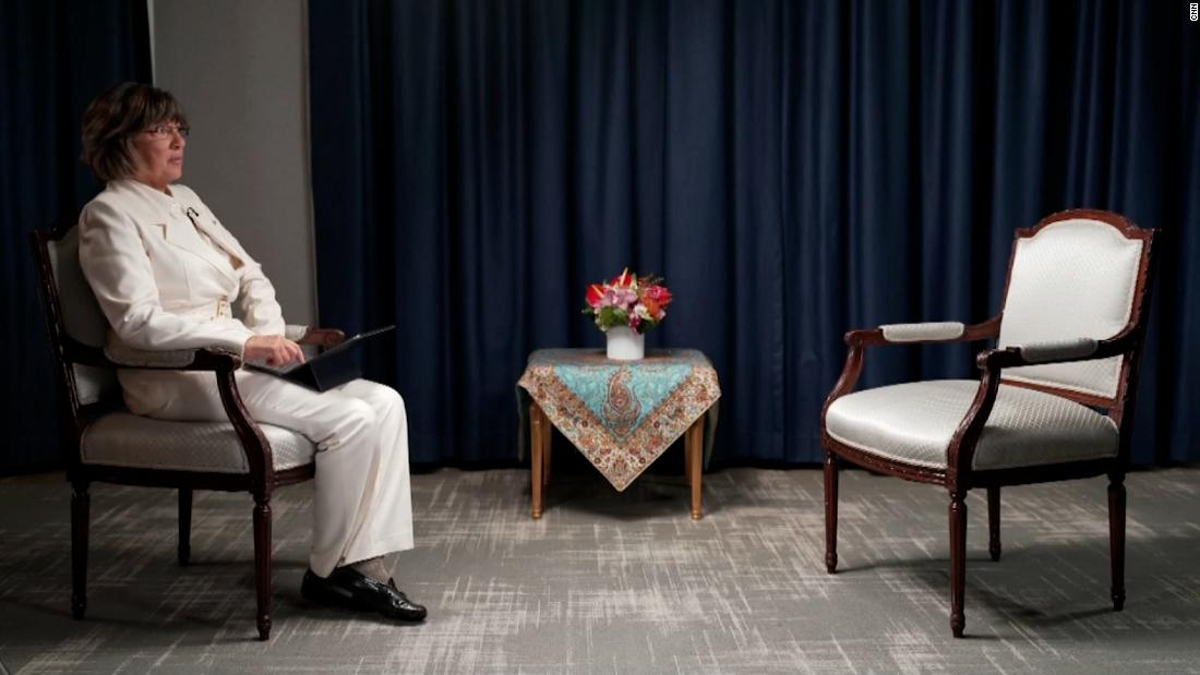"I refused": Amanpour recounts why he did not accept the request of the president of Iran 3:26
(CNN) --
Iranian President Ebrahim Raisi has walked away from a long-planned interview with CNN's top international anchor Christiane Amanpour at the United Nations General Assembly in New York on Wednesday, after that she turned down a last-minute demand to wear a headscarf or veil.
About 40 minutes after the interview was scheduled to begin and with Raisi having arrived late, an attendee told Amanpour that the president had suggested that he wear a headscarf.
Amanpour said she "politely declined."
Amanpour, who grew up in the Iranian capital Tehran and speaks fluent Farsi, said she wears a headscarf while reporting in Iran to comply with local laws and customs, "otherwise I wouldn't be able to operate as a journalist."
But she said he would not wear a head covering to conduct an interview with an Iranian official outside a country where it is not required.
Mahsa Amini's father says authorities in Iran lied about her death;
protests escalate
"Here in New York, or anywhere else outside of Iran, no Iranian president has ever asked me, and I have interviewed every one of them since 1995, whether inside or outside of Iran, I have never been asked to wear a headscarf. in the head," he said Thursday on CNN's "New Day."
"I very politely declined on behalf of myself and CNN and women journalists around the world because it's not a requirement."
Iranian law requires all women to cover their heads and wear loose clothing in public.
The rule has been applied in Iran since the 1979 Islamic Revolution, and is mandatory for all women in the country, including tourists, visiting political figures and journalists.
advertising
Amanpour said Raisi's aide made it clear that the interview, which would have been the Iranian president's first on US soil, would not take place if she did not wear a headscarf.
He referred to it as "a matter of respect", since it is the holy months of Muharram and Safar, and referred to "the situation in Iran", referring to the protests sweeping the country, he added.
Anti-government protests erupted across Iran last week over the death of 22-year-old Mahsa Amini in custody after she was arrested by Iran's morality police on charges of violating the headscarf law.
Thousands of people have taken to the streets, with some women cutting their hair and burning their hijabs in protest against the law.
Human rights groups have reported that at least eight people have been killed in the demonstrations, which have faced heavy repression by authorities, according to witnesses and videos shared on social media.
The demonstrations appear to be the largest-scale show of defiance against the Islamic Republic government, which has tightened since the election of the hardline Raisi government last year.
After eight years of Hassan Rouhani's moderate administration, Iran has elected Raisi, an ultra-conservative judicial chief whose views are in line with the thinking of the country's powerful clergy and supreme leader, Ayatollah Ali Khamenei.
Burka, niqab, chador, hijab: how to distinguish the different veils worn by Muslim women
In Iran, the headscarf is a powerful symbol of a set of personal rules imposed by the country's clerical leaders, governing what people can wear, look at and do.
Protests have broken out over the past decade as many Iranians have resented those limitations.
Amini's death has fueled a wave of long-simmering anger at restrictions on personal freedoms.
Surveys and reports in recent years have shown that a growing number of Iranians do not believe that the hijab, or headscarf, should be compulsory.
Iranian authorities have claimed Amini died after suffering a "heart attack" and falling into a coma, but his family has said he did not have a pre-existing heart condition, according to Emtedad News, a pro-reform Iranian media outlet.
Skepticism about officials' account of her death has also stoked public outcry.
Security camera footage released by Iran's state media showed Mahsa Amini collapsing at a "re-education" center where morality police took her for "guidance" on her attire.
Amanpour had planned to question Raisi about Amini's death and the protests, as well as the nuclear deal and Iran's support for Russia in Ukraine, but said he had to decline.
"As protests continue in Iran and people are being killed, it would have been an important time to speak with President Raisi," he said in a Twitter thread.
Amanpour Ebrahim Raisi











